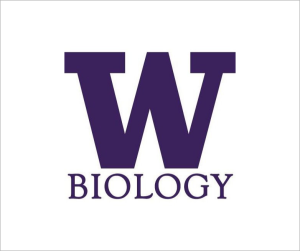New Neurons Replace Naturally Dying Neurons in the Adult Brain

Neurogenesis, or the birth of new neurons in the adult brain, occurs widely across animal species, including mammals (and humans) but to a more limited degree than birds and fish. In mammals, neurogenesis occurs in its highest levels after physical injuries to the brain following stroke and traumatic brain injuries. This type neurogenic response to injury-induced neural death is called reactive neurogenesis and is thought to repair neural circuit and restore ‘normal’ behavior.
Neuroscientists were previously aware that injury-induced neural reactive neurogenesis occurs, however no previous studies had described reactive neurogenesis following ‘natural’ neural loss such as that which occurs with aging, depression, and other neurodegenerative diseases. To ask whether natural reactive neurogenesis occurs in the adult brain, the authors exploited the natural neuronal death that occurs in the brain circuit that controls singing behavior in Gambel’s white-crowned sparrows (Zonotrichia leucophyrus gambellii).

This study discovered for the first time new neurons are produced in the adult brain to compensate for neural loss that occurs naturally in the brain. Moreover, the researchers found that if neuronal death is prevented, reactive neurogenesis does not occur, suggesting neuronal death is absolutely necessary for reactive neurogenesis to occur. Describing the phenomenon of neuronal birth following natural neuronal death in the adult brain will allow future exploration into potential mechanisms that give rise to this process and the function adult-born neurons serve. We can now ask: What genes and signals are naturally dying neurons producing to initiate the production of new neurons? Can we exploit these signals to prompt brain repair during aging, depression and other neurodegenerative conditions? If we can induce reactive neurogenesis in the pathological brain, will these new neurons restore normal behavior? Investigation of these questions could ultimately lead to the development of therapeutics that reduce neural death, stimulate neural regeneration, and restore lost functions and behavior in the human brain. Thus, this research has the ability to transform the way nonscientists think and the way clinicians treat patients with neural damaging disorders.

Written by: Marianne Cole, Undergraduate Student, University of Washington, Department of Psychology
Edited by: Tracy Larson, Graduate Student, University of Washington, Department of Biology
Original article: Larson TA, Thatra NM†, Lee B†, Brenowitz EA. (2014) Reactive neurogenesis in response to naturally occurring apoptosis in an adult brain. The Journal of Neuroscience. 34(39): 13066-76 doi: 10.1523/JNEUROSCI.3316-13.2014 PMID: 25253853
Related Press:
Local and National
- S Hines, University of Washington News and Information. (2014) Dying brain cells cue new brain cells to grow in songbird
- T Dubnicoff, California Institute of Regenerative Medicine. (2014) The sparrow’s dying song: a possible path toward natural, stem cell-based repair of human brain diseases.
- C Griffith, Science World Report. (2014) New brain cells grown in songbirds each year: Neuron growth investigated
- S Hines, Futurity. (2014) Do dying neurons tell bird brains to regenerate?
- K Nayan, Counsel & Heal. (2014) Dying brain cells cue new brain cells to grown in songbird, study finds
- O Nunez, Design & Trend. (2014) Regenerating brain neurons help birds sing better during breeding season
- Three Sentence Science. (2014) Dying brain cells cue up new ones in songbirds
International
- Ians, ZeeNews, India. (2014) Dying cells send signal to stimulate new cells in birds.


